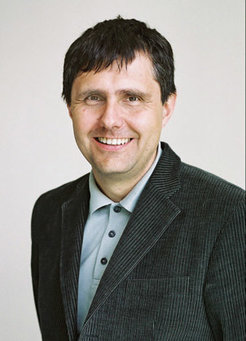Max Planck Research Award 2008 goes to Peter Fratzl and Robert Langer
Max Planck Society and Alexander von Humboldt Foundation present lucrative prize of, in total, 1.5 million euros
The Max Planck Research Award 2008, with prize money of, in total, 1.5 million euros is to go to the Austrian colloids and interfaces researcher Prof. Dr. Peter Fratzl and the American chemical engineer Prof. Dr. Robert Langer. They will receive the award for their research into structuralfunctional correlations in the development of biologically inspired materials and systems. The prize will be awarded at the 59th annual meeting of the Max Planck Society in Dresden on 26 June.

Since 2003, Prof. Dr. Peter Fratzl has been Director of the Department of Biomaterials at the Max Planck Institute of Colloids and Interfaces and is one of the pioneers in the field of biological and biomimetic materials. The biophysicist strives to understand what makes bones and wood so stable and at the same time deformable. His innovative, experimental work in the area of physics and his multiple award-winning interdisciplinary research has earned Fratzl a position as one of the most respected representatives of biomimetic materials research. Recently, the scientist discovered how wild wheat is distributed by the motor and control mechanism of the awns. His prize money will be put towards the further research of mechanical attributes of biological and biomimetic materials as well as to highlight the importance of biomimetic materials in the scientific field.
Since 2005, Prof. Dr. Robert Langer has been an Institute Professor for chemical engineering and medical technology at the Massachusetts Institute of Technology in Boston (MIT), USA. Langer’s scientific work concentrates mainly on the study of the transfer of biological functions to materials. A major focus of his research in this area is his work on controlled release systems for drugs. Langer’s special area includes socalled "Tissue Engineering", in which biomimetic materials play an important role for the development of drugs. Langer’s prize money will be put towards supporting the use of biologically composed materials in biotechnological and biomedical research.
The Max Planck Research Award, the international research prize of the Alexander von Humboldt Foundation and the Max Planck Society, supports scientists from Germany and abroad who are working in areas with particular scope for future development. The funding for this programme is made available by the Federal Ministry for Education and Research. It is awarded in each case to a scientist working in Germany and to a scientist working abroad, who have both already gained international recognition and who are expected to continue to deliver an outstanding performance in the field of international scientific cooperation. The Max Planck Research Award is offered each year on a rotating basis for work in an area in the natural sciences, the engineering sciences, the life sciences and the humanities.
Alexander von Humboldt Foundation
Each year the Humboldt Foundation enables over 1,800 researchers from abroad to spend extended research time in Germany. The foundation has a global network of around 22,000 members from all specialist areas in 130 countries - including 40 Nobel Prize-winners.
The Max Planck Society
promotes basic research at a top international level in the life sciences, natural sciences and humanities. More than 12,000 staff and a further 9,000 visiting scientists, PhD students as well as undergraduate assistants work in the various research fields and provide the essential groundwork for scientific and social innovations.












